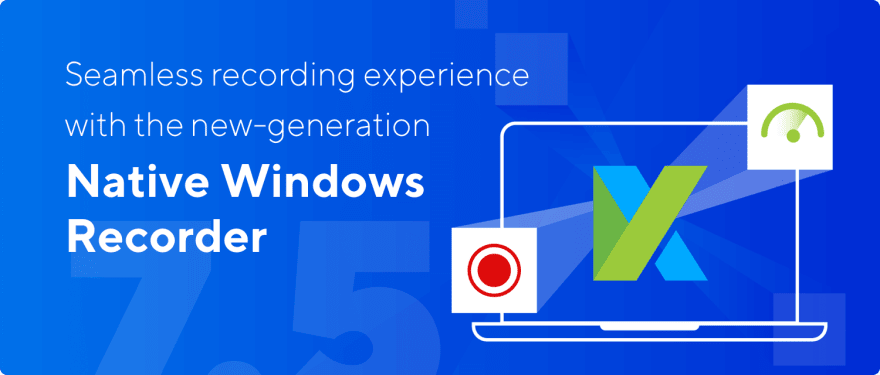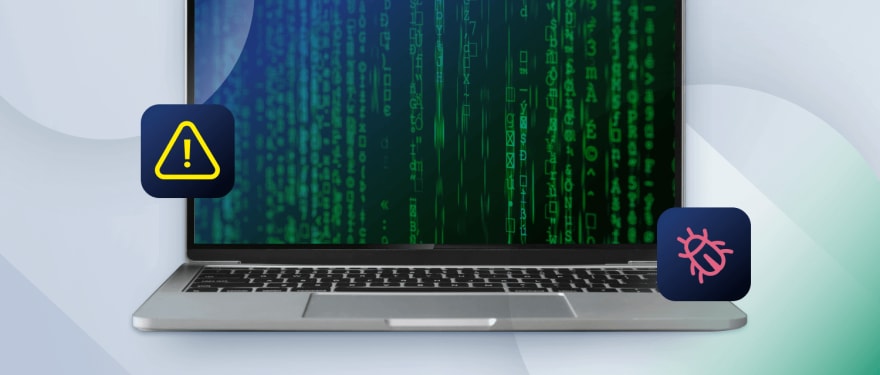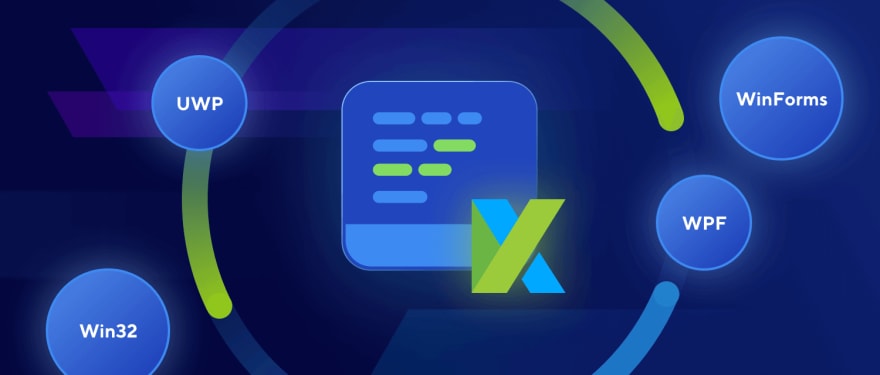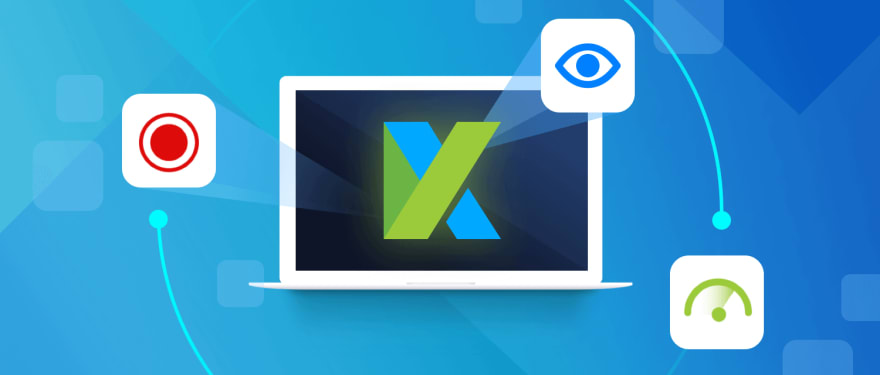Katalon Studio has released its latest version 7.5 that comes with the new Native Windows Recorder feature. The testing tool provides its users with a comprehensive Recorder utility, helping them to generate test cases quickly and accurately, with minimal effort.
This article will look into the nature of desktop application testing, its relevance in today’s age, and how you can best utilize the tool for all types of application testing, cross-functional, and robustly executed.
You can read more about Desktop Application Testing here.
What is Desktop Application Testing?
Desktop applications are the software built to work independently on a desktop operating system, either Windows, macOS, or Linux. As desktop applications run on personal computers, they work autonomously from all other applications.
For the applications to work smoothly on the desktop interface, it requires sufficient hardware resources and a thorough testing process. Testing desktop applications normally focuses on a specific environment with a checklist that the testers must go through in their development process.
A suggested checklist for desktop application testing:
- GUI Testing
- Functional Testing: Including check for broken links, warning messages, resolution change effects, print, theme change, installation (upgrade/downgrade), testing with multiple user accounts, sleep mode, cache
- Compatibility Testing: Test the application on different operating systems
- Performance Testing: In the case of the users use the application for a long period, consuming more memory than normal
- Security Testing
Desktop Application Testing Trend in Today’s testing Landscape
Web and mobile applications are getting more attention from both businesses and end-users, but that does not mean desktop applications are less important. Desktop applications help ensure smooth user experience for products, thus effectively retain users to stay using it.
Users today are scattered to many different platforms, and with diverse usages. That means new products have to be developed for the cross-platform and cross-functional goals to successfully reach more users or customers.
When compared to web application testing, desktop application testing has its differences. Firstly, the desktop applications need to be installed/uninstalled on the user’s machine; thus, these steps should be checked carefully to ensure these basic functionalities. As desktop applications are mostly environment-specific, setting up the environment first when testing is also a highly important step that should be done carefully.
Lastly, both web and desktop applications are products that interact directly with the end-users; therefore, the functional testing of GUI (Graphical User Interface) plays a crucial role in ensuring a seamless user experience.
An Overview of Desktop Application Testing with Katalon Studio
Katalon Studio provides cross-platform automation testing for applications on the web, mobile, API, and desktop. It also offers built-in capabilities for both codeless and scripted testing. Katalon Studio users are given the freedom to quickly and easily build up their test projects thanks to its productive IDE for testing.
Starting from version 7.0 onward, Katalon Studio has started to support desktop application testing. The tool has wide support on Universal Windows Platform (UWP), Windows Forms (WinForms), Windows Presentation Foundation (WPF), and Classic Windows (Win32).
As testing with Katalon requires no extensive programming skill, you and your team are able to get started quickly with desktop testing by leveraging the built-in project templates, keywords, and smart execution features.
Fully developed end-to-end testing for desktop applications
- Object detection
Built upon Windows Application Driver, Katalon Studio supports you with 6 locator strategies for identifying UI elements of a Desktop application. You can choose different ways to locate a Windows test object:
-
- Accessibility ID: The AutomationId of an object
- Class Name: The ClassName property of an object
- ID: The unique runtime ID of an object
- Name: The name of an object
- Tag Name: The tag name (aka the element type) of an object
- XPath
Plus, Katalon Studio’s Windows Object Spy and Recorder have a built-in Highlight feature that allows double-checking if the Windows objects are able to be located.
Using this feature, Katalon Studio will display a message on how many elements are found or NOT found with the selected locator strategy and locator. If the object is found, it will be highlighted with the green border.
Users are also able to update test objects’ locators dynamically by using either local or global variables.
- Windows spying utility
Katalon Studio offers a robust spying utility for all web, mobile, and desktop applications testing.
With desktop testing, when the application starts, Katalon Studio will begin capturing all available Windows objects on the current screen of the testing machine and show them at the ALL OBJECTS section.
The Screen View for desktop application testing with Katalon Studio includes all the crucial elements you need for a complete spying task. The Configurations, Screen Objects, Captured Object, Object Properties, and Screen View are all made available in the application’s spying window, allowing for easy navigation and execution.
- Native Windows recording
In addition to the Windows Recording feature, Katalon Studio has quickly added the Native Windows Recording feature in its later releases to improve the test case creation process and make the recording utility more convenient, with much higher accuracy.
Using the later Native Windows recording feature, when testers hover over an element of the AUT, Katalon Studio immediately highlights the identified object. Then, when you perform an action on the AUT, the action is recorded in the Recorded Actions section.
The list of available actions is the same as Katalon Studio’s built-in keywords. You can add any action, call another test case, and/or use Custom Keywords.
In the Captured Objects tab, users can view all elements captured during the recording session. They are able to customize the locators of the captured objects by modifying it in the Locator tab of Object Properties. Note that the captured objects’ locators are their absolute XPaths.
The Native Windows recorder significantly shortens the test case creation process, flattens the learning curve for fresher testers, and saves the team’s both time and effort to best optimize the ROI.
Conclusion
Katalon Studio has had a stable foundation and coverage for web, mobile, and API testing since its inception. Now, the tool can further leverage its available infrastructure to continue to enhance desktop application testing, offering a holistic testing experience on all platforms.
For enterprise testing needs, Katalon Studio is an ideal automation tool as it offers all-inclusive testing functionalities and proven product development throughout the years. If you and your team need to see a live demo of testing with Katalon, simply fill out this form and our team member will reach out to you.
The post Native Windows Recorder — Accelerate Desktop Application Testing with Katalon appeared first on Katalon Solution.







Top comments (0)